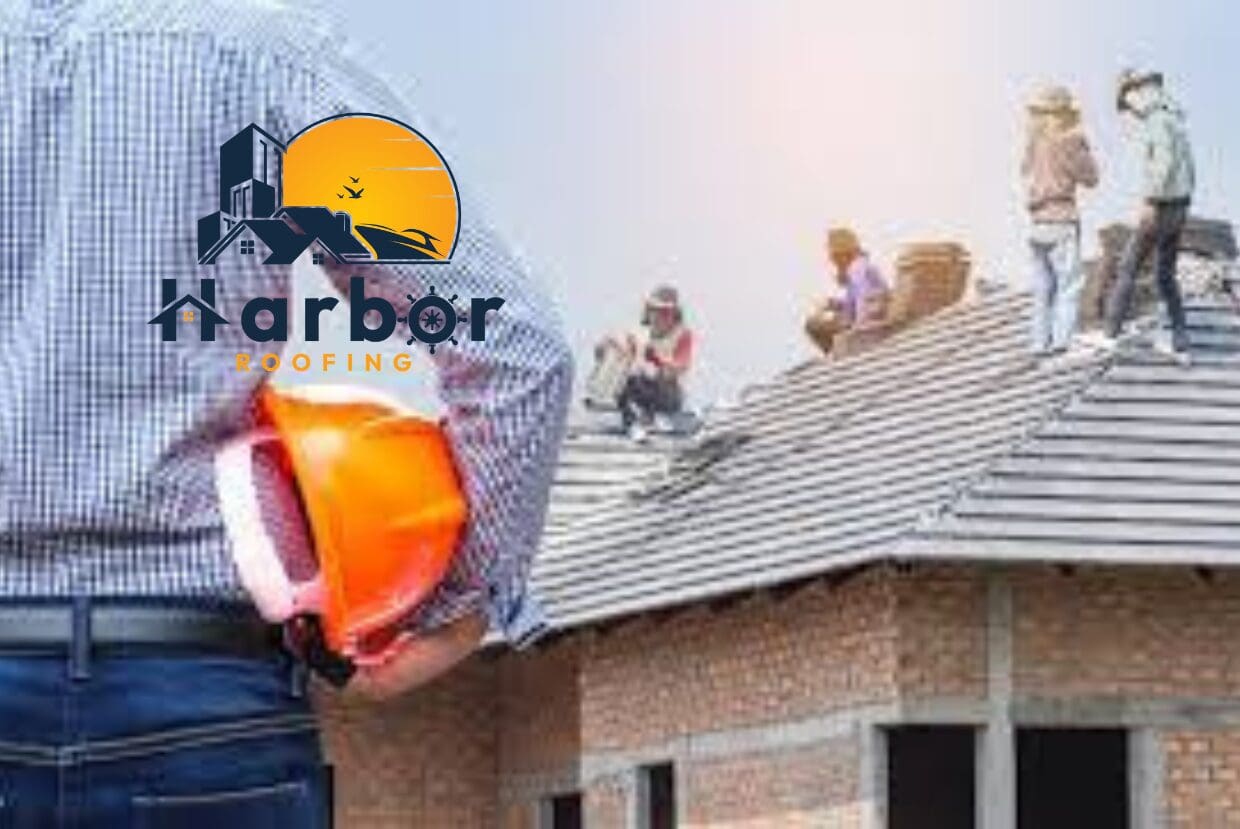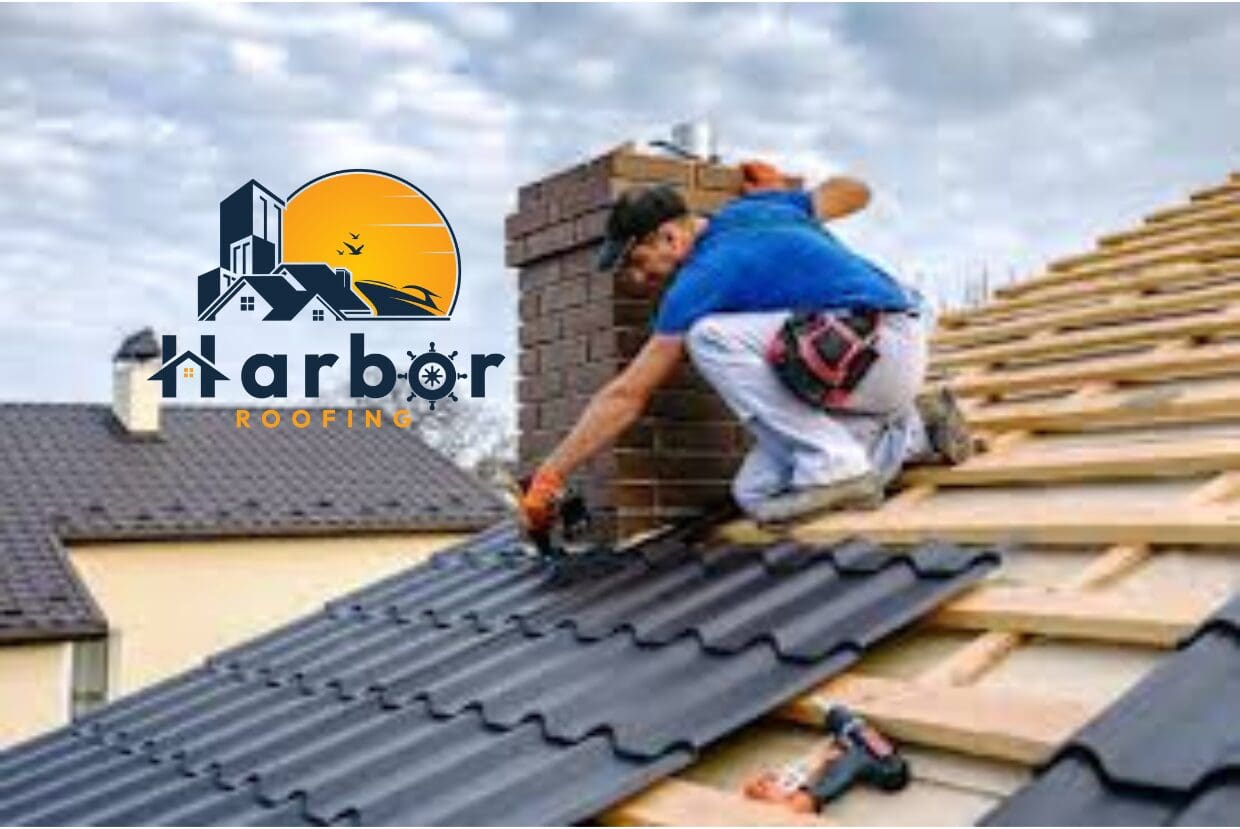Table of contents
- Relevance of the Shingle Brand in Your Roof’s Performance
- The Roofing Contractor’s Role In Your Roof’s Performance
- Finding the Right Balance Between the Shingle Brand and Roofing Contractor
- Common Mistakes Homeowners Make
- Why You Should Trust the Roofing Contractor More than the Shingle Brand
- Conclusion
- Frequently Asked Questions
When it’s time for a roof replacement, homeowners often deal with choosing between the shingle brand and roofing contractor. Both are important, but which one really determines how long your roof lasts?
At Harbor Roofing, we’ve replaced and repaired enough roofs to know this debate isn’t as simple as it looks. While high-quality shingles play a role, the person installing them ultimately decides how well your roof performs. Let’s break down why that’s true and how to make the smartest decision for your home.
Relevance of the Shingle Brand in Your Roof’s Performance

There’s no denying that shingle brands bring real value. Reputable manufacturers invest heavily in testing, durability, and design. Their shingles resist cracking, fading, and wind damage better than cheaper alternatives.
Homeowners also appreciate the variety, with different colors, textures, and styles that complement any home design. Depending on the brand, you may be eligible for an enhanced warranty if certified contractors handle the installation.
In other words, the right brand provides a solid foundation for your roof. But just like buying a premium car, performance depends on the driver.
The Roofing Contractor’s Role In Your Roof’s Performance
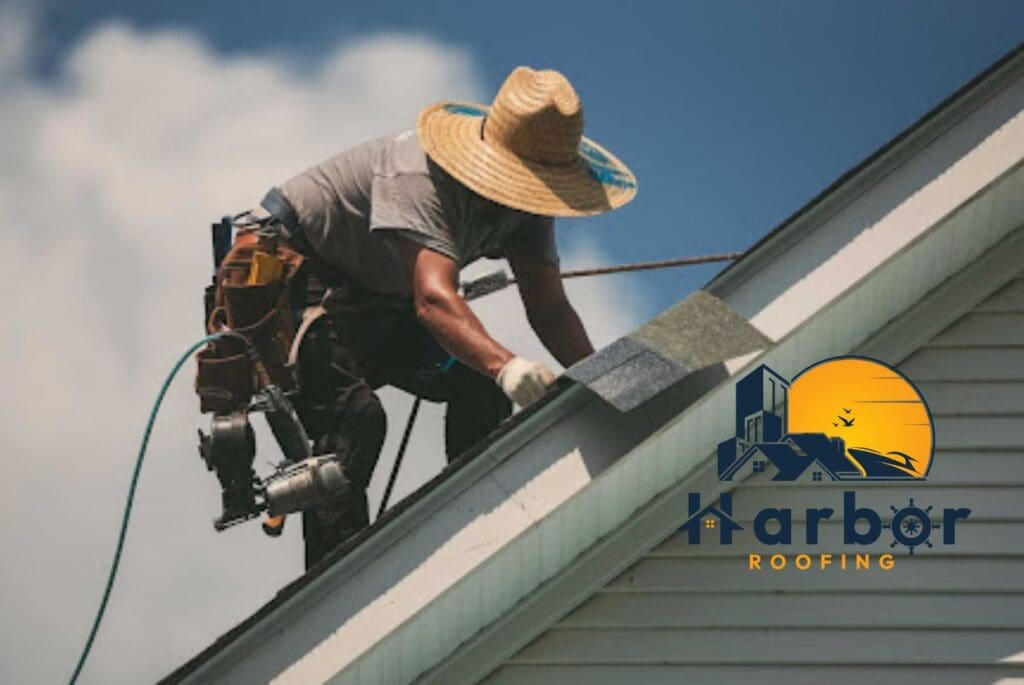
A well-installed roof protects your home for decades. A poorly installed one can start leaking before its first year. That’s why your roofing contractor matters far more than the label on the shingle wrapper.
Here’s what makes excellent contractors stand out:
1. Precision and Experience
Roofing is an exact science that depends on skill, timing, and years of experience. A skilled roofing crew understands how every layer of a roof works together. The shingles, underlayment, flashing, vents, and decking each play a role in keeping your home safe.
If one step is done wrong, the entire system can fail. For example, improper flashing around a chimney or skylight can lead to leaks, regardless of the quality of the shingles. Nails placed at the wrong angle or depth can compromise wind resistance.
Experienced contractors avoid these costly mistakes because they have seen what happens when they take shortcuts. They build a weatherproof system designed to protect your home from rain, snow, heat, and wind.
2. Installation Quality Protects Your Warranty
You can purchase the most expensive shingles available, but if they are installed incorrectly, your warranty may be rendered useless. Most major manufacturers, such as GAF, CertainTeed, and Owens Corning, clearly state that warranty coverage depends on proper installation.
A professional roofing contractor knows those manufacturer specifications by heart. Nail patterns, ventilation requirements, flashing techniques, and sealing temperatures all play a role. Skipping a single detail could shorten your roof’s life or void its warranty entirely.
Think of it like assembling complex equipment. You would not trust someone who ignores the instructions. A certified contractor follows the manufacturer’s guidelines carefully to ensure your warranty remains valid and your roof performs as it should.
3. Accountability After Installation
When a storm hits, it is not the shingle brand that inspects your roof; it is your contractor. That is where accountability becomes essential. A reliable roofing company stands behind its work long after the final payment is made.
If a strong wind loosens a shingle or you notice a small leak months later, a trusted local team will return, inspect the area, and handle any necessary repairs. You won’t be left waiting for a call center or a distant manufacturer.
4. Tailored Recommendations
Every home is unique; therefore, a seasoned roofing contractor takes the time to understand your home’s structure, attic ventilation, and local climate before making any recommendations.
They will help you choose between architectural and three-tab shingles, explain which underlayment offers the best moisture protection, and make sure your ventilation keeps your attic dry and energy-efficient.
If you live in an area with frequent storms, they might recommend shingles with higher impact ratings. If your concern is energy savings, reflective shingles could be a better option.
Finding the Right Balance Between the Shingle Brand and Roofing Contractor
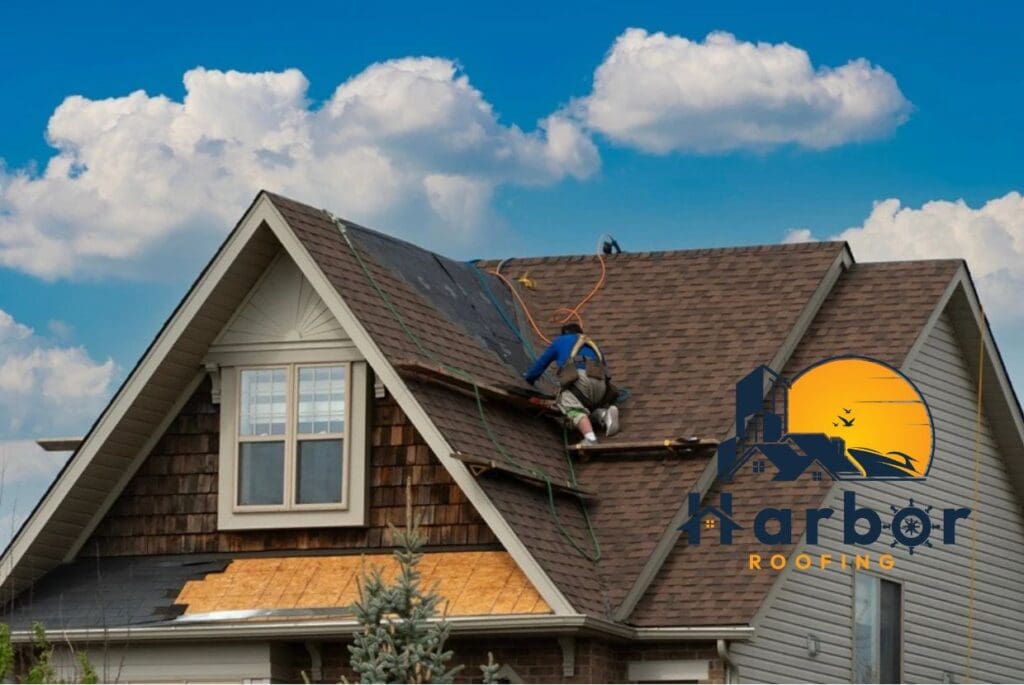
Ideally, you want both a reliable shingle brand and a certified roofing contractor who knows how to install it properly. Here’s how to achieve that balance:
1. Check for credentials: Look for licensing, insurance, and manufacturer certifications. Certified contractors have proven they know how to install a brand’s products correctly.
2. Compare warranties the right way: A lifetime warranty sounds impressive, but some are heavily prorated. Ask your contractor to explain what’s actually covered and for how long.
3. Prioritize local reputation: A roofing contractor with strong local reviews and repeat clients will value their name in your community. That accountability matters more than a low bid from an out-of-town crew.
4. Insist on a roof inspection first: Before quoting prices, good contractors inspect. They check for ventilation issues, wood rot, or improper flashing that could undermine your new roof’s lifespan.
5. Ask the right questions: The following are some critical questions you should ask:
- How long have you worked with this brand?
- Are your installers trained by the manufacturer?
- Who handles warranty claims if something goes wrong?
The answers will reveal more about their professionalism than any brochure could.
Common Mistakes Homeowners Make
Many roofing issues begin with good intentions that go wrong. A homeowner might be trying to save money or choose a product that “looks premium,” but the wrong decision can cause long-term problems. Here are some of the most common mistakes to watch out for:
Choosing the Lowest Bid
Everyone wants to save money on a big project, but when it comes to roofing, a suspiciously low bid should raise concerns. A cheaper quote often means taking shortcuts somewhere, such as skipping essential steps like underlayment reinforcement, using low-quality sealants, or hiring less experienced laborers. Those savings can disappear fast when leaks appear or your shingles start lifting after the first big storm. A fair and transparent estimate from a reputable contractor may initially be more expensive. However, it ensures the use of quality materials, expert labor, and long-term peace of mind.
Focusing Only on Shingle Type
It’s easy to get caught up comparing brands, colors, and styles of shingles. However, even the toughest shingles cannot compensate for poor installation. A roof is an integrated system comprising decking, flashing, ventilation, and insulation, all of which must work closely together. If one part fails, the rest will follow. A strong, durable roof depends less on the label on the shingle bundle and more on how a skilled crew puts together the entire system.
Ignoring Communication Style
Your contractor’s communication style is a window into their professionalism. A good roofer takes the time to explain the process, outline timelines, and keep you updated as the work progresses. When a roofing contractor disappears for days or avoids your calls, it typically signals deeper issues, such as poor organization or a lack of accountability. Roofing projects are significant investments, so choose someone who treats you like a partner, not just another job.
Skipping Maintenance
Even the best roof installation is not “set it and forget it.” Seasonal maintenance keeps your roof performing as it should. Small tasks, such as cleaning gutters, trimming overhanging branches, and inspecting flashing, can prevent leaks and structural damage. Regular roof inspections, especially after severe weather or before winter, can catch early signs of trouble before they develop into expensive repairs. Preventive care is always cheaper than emergency fixes.
Why You Should Trust the Roofing Contractor More than the Shingle Brand
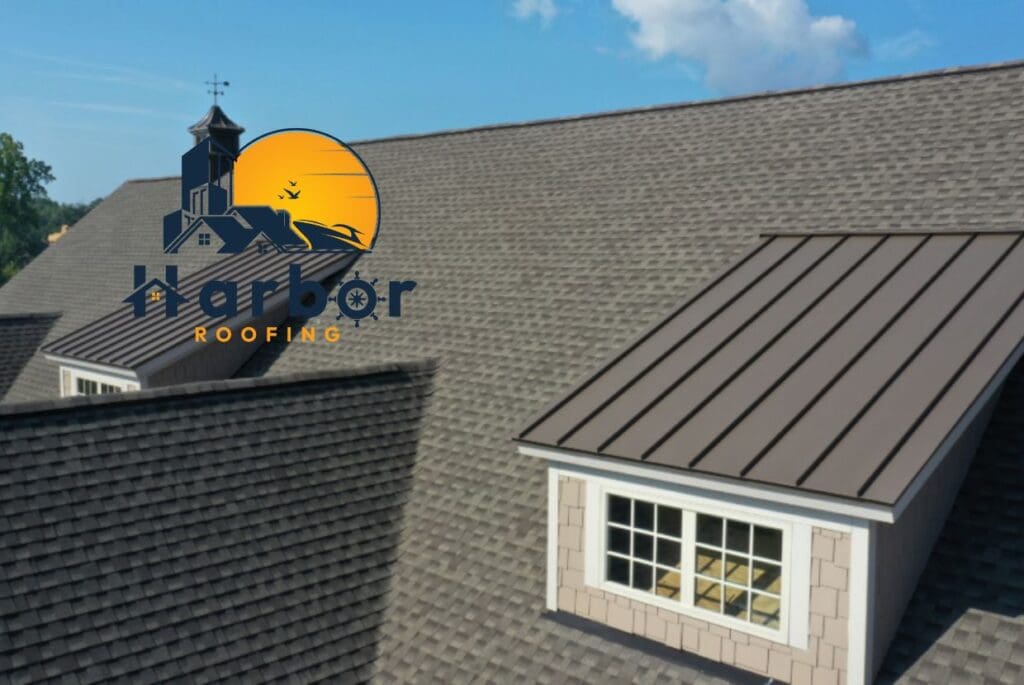
If you had to choose between premium shingles installed poorly and standard shingles installed perfectly, go with the latter every time. Installation controls how water flows, how heat escapes, and how long materials last.
It’s like cooking. You can buy the best ingredients and end up with a disastrous meal without a skilled cook. A well-trained roofing team ensures that your materials perform as the manufacturer promised.
That’s why at Harbor Roofing, we focus on craftsmanship, communication, and reliability. We use top-quality materials. However, our primary goal is to make sure we install them to perfection.
Conclusion
Ultimately, both the shingle brand and the roofing contractor are essential. The brand gives your roof potential, while the contractor unlocks it.
A good brand can’t fix bad workmanship, but a good contractor can make any reputable shingle shine. When you choose experienced professionals who treat every roof like their own, you’re investing in peace of mind.
Frequently Asked Questions
Do I need a certified roofing contractor to install my shingles?
Yes. Many manufacturers require certified installers to keep your warranty valid. Certified contractors also know how to meet the manufacturer’s standards for proper installation.
Can a bad installation void my shingle warranty?
Absolutely. Even minor errors, such as improper nailing or ventilation, can void a warranty. Always confirm your installer is trained in that brand’s specifications.
Should I buy the shingles myself and hire someone to install them?
That’s risky, and we do not advise. If you buy the materials separately, you could lose warranty protection, and contractors may not guarantee labor on products they didn’t supply.
What’s the best way to compare contractors?
Meet with at least three, ask detailed questions, and compare the price, warranty, timeline, and service reputation.


